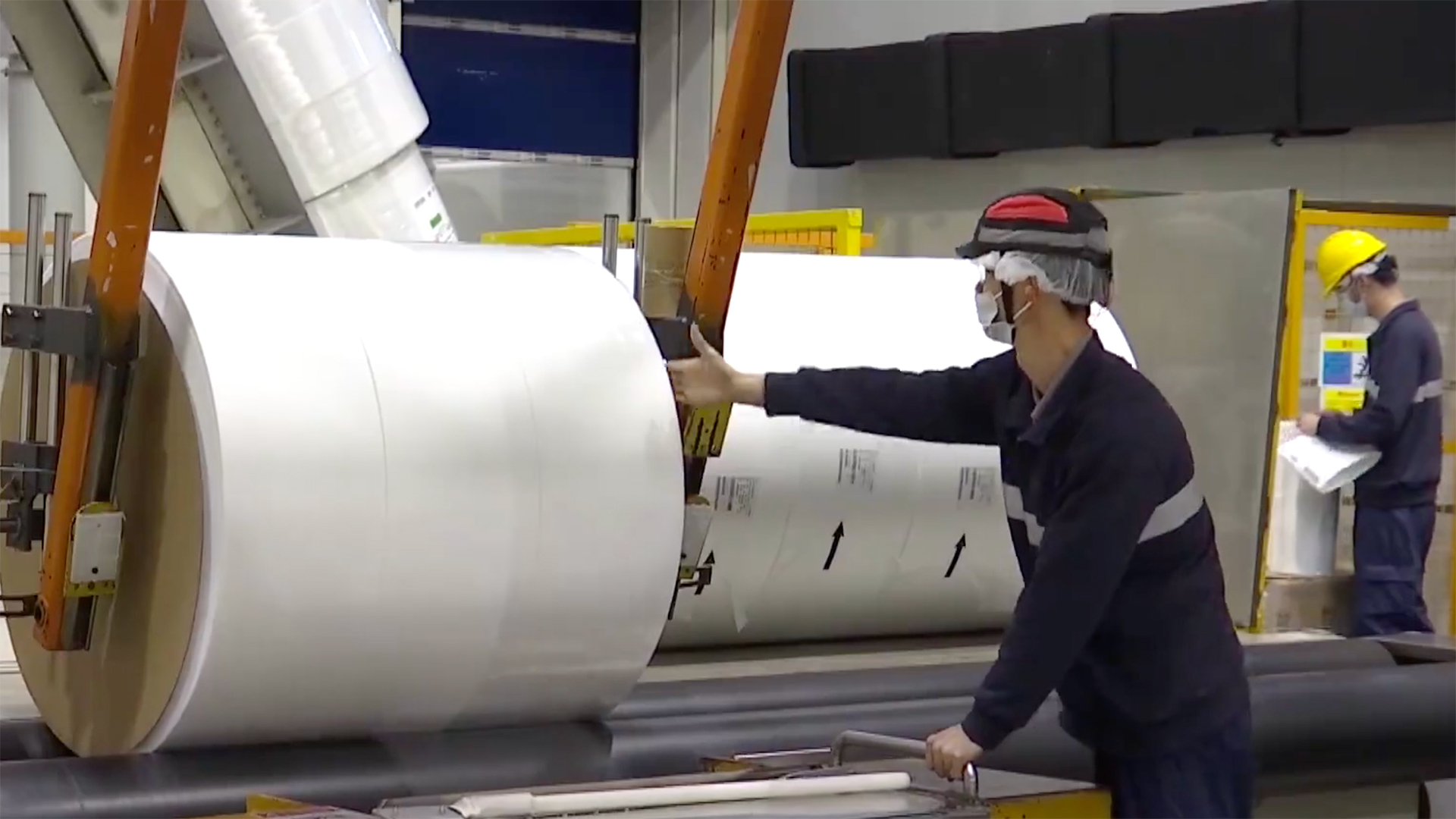02:02

As masks and protective suits face a supply shortage amid the novel coronavirus outbreak, production for medical supplies has accelerated.
CGTN visited a factory that produces materials for masks and protective clothing in Foshan, south China's Guangdong Province, that is operating at maximum capacity even over the Spring Festival break.
It produces 80 tons worth of non-woven fabric per day, which can be used to make one million surgical masks, or 400,000 protective suit.
Surge in orders
"Domestic orders have surged over the past few days," Cui Yanzhao, general manager of the factory, told CGTN. "The orders that we have received within the past three to four days are even more than the total of what we usually receive in a single month."
The manager said the factory's priority now is to guarantee a stable supply and price.
"The more medical supplies we make, the more people we may save," said Zhang Zhixiang, the company's manufacturing manager. Zhang is from Wuhan, and was not able to return to his hometown this holiday due to the virus outbreak. But he feels his job is just as important as a doctor.
Logistics and labor shortage
What are the major difficulties facing the supply chain now?
The first is logistics. It's not easy to transport productions to other places especially Hubei Province, the epicenter of the novel coronavirus outbreak. Some truck drivers are reluctant to go there, and special permissions are also required for transportation vehicles heading to the province.
Next, it takes time to process raw materials into medical supplies. For example, a worker can only produce 20 protective suits per day at most. So finding enough workers to make enough supplies in a timely manner is also a problem. According to official data, the daily maximum production of protective suits across China is 30,000 to 50,000, but the daily demand in Wuhan is 100,000.
Over 120 staff are working on three-shift rotation, which is basically working round the clock to produce materials for masks and other medical supplies.
One solution is to buy more efficient machines for production, a suggestion the government is now considering.